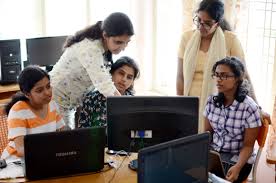 ASEAN-U.S. Science and Technology Fellows Program, supported by the U.S. government, helps early career scientists from ASEAN Member States be more engaged in policies that drive national priorities and affect the lives of citizens in ASEAN. The ASEAN region boasts strong skills and potential in science and technology and seeks to leverage these capacities to increase regional competitiveness, foster innovation and entrepreneurship, improve resource management, and enhance the lives of its citizens. Currently, few non-governmental scientists are consulted by ASEAN Member State (AMS) governments on policy decisions, and these scientists generally have a limited understanding of the government decision-making processes and how to effectively engage. ASEAN has a role to play in fostering and institutionalizing a culture of science-based policymaking throughout the region, and the Fellowship seeks to provide opportunities for policy-makers and scientists alike to learn from one another.
ASEAN-U.S. Science and Technology Fellows Program, supported by the U.S. government, helps early career scientists from ASEAN Member States be more engaged in policies that drive national priorities and affect the lives of citizens in ASEAN. The ASEAN region boasts strong skills and potential in science and technology and seeks to leverage these capacities to increase regional competitiveness, foster innovation and entrepreneurship, improve resource management, and enhance the lives of its citizens. Currently, few non-governmental scientists are consulted by ASEAN Member State (AMS) governments on policy decisions, and these scientists generally have a limited understanding of the government decision-making processes and how to effectively engage. ASEAN has a role to play in fostering and institutionalizing a culture of science-based policymaking throughout the region, and the Fellowship seeks to provide opportunities for policy-makers and scientists alike to learn from one another.
The Fellowship provides opportunities for early career scientists who are citizens and residents of AMS to contribute their knowledge and analytical skills to their national governments. Fellows will be embedded in sectoral or line ministries or other agencies within their home countries, providing these institutions with increased technical capacity to make informed, science-based decisions. More specially, Fellows will be hosted by entities that support technical work aligned with the following three ASEAN and U.S. science and technology priority areas:
 ASEAN-U.S. Science and Technology Fellows Program, supported by the U.S. government, helps early career scientists from ASEAN Member States be more engaged in policies that drive national priorities and affect the lives of citizens in ASEAN. The ASEAN region boasts strong skills and potential in science and technology and seeks to leverage these capacities to increase regional competitiveness, foster innovation and entrepreneurship, improve resource management, and enhance the lives of its citizens. Currently, few non-governmental scientists are consulted by ASEAN Member State (AMS) governments on policy decisions, and these scientists generally have a limited understanding of the government decision-making processes and how to effectively engage. ASEAN has a role to play in fostering and institutionalizing a culture of science-based policymaking throughout the region, and the Fellowship seeks to provide opportunities for policy-makers and scientists alike to learn from one another.
ASEAN-U.S. Science and Technology Fellows Program, supported by the U.S. government, helps early career scientists from ASEAN Member States be more engaged in policies that drive national priorities and affect the lives of citizens in ASEAN. The ASEAN region boasts strong skills and potential in science and technology and seeks to leverage these capacities to increase regional competitiveness, foster innovation and entrepreneurship, improve resource management, and enhance the lives of its citizens. Currently, few non-governmental scientists are consulted by ASEAN Member State (AMS) governments on policy decisions, and these scientists generally have a limited understanding of the government decision-making processes and how to effectively engage. ASEAN has a role to play in fostering and institutionalizing a culture of science-based policymaking throughout the region, and the Fellowship seeks to provide opportunities for policy-makers and scientists alike to learn from one another.
Goals
- Advance regional cooperation on ASEAN strategic priorities;
- Strengthen science-based policymaking throughout targeted national government ministries and/or bodies; and
- Empower and build the capacity of scientists in ASEAN to take a more prominent role in their respective country’s efforts to integrate into the ASEAN Community.
The Fellowship provides opportunities for early career scientists who are citizens and residents of AMS to contribute their knowledge and analytical skills to their national governments. Fellows will be embedded in sectoral or line ministries or other agencies within their home countries, providing these institutions with increased technical capacity to make informed, science-based decisions. More specially, Fellows will be hosted by entities that support technical work aligned with the following three ASEAN and U.S. science and technology priority areas:
- Sustainable Energy – Supporting development of strategies or policies to help national governments accelerate using efficient, environmentally friendly, and clean energy; addressing political and other barriers to help ASEAN achieve its goals of significantly increasing use of renewable energy.
- Climate Change and Climate Variability – Supporting development of national climate change strategies, policies or action plans; supporting government efforts to mitigate the impacts of climate change on cities, communities, and ecosystems.
- Science, Technology and Innovation (STI) Policy – Supporting the development of strategies, policies or frameworks to accelerate scientific activity or technology transfer; address intellectual property rights; foster collaboration between science and industry; catalyze STI investments, and promote entrepreneurship. (Note: Scientists with industry experience are especially encouraged to apply under this theme.)
More information at ASEAN-U.S. Science and Technology Fellows Program
